RE-POST
Okay so as you have likely already noticed, there will be some of the choices including two performances. Not really cheating, sometimes it is just appropriate to group them. As we do for the first of the next 5 here:
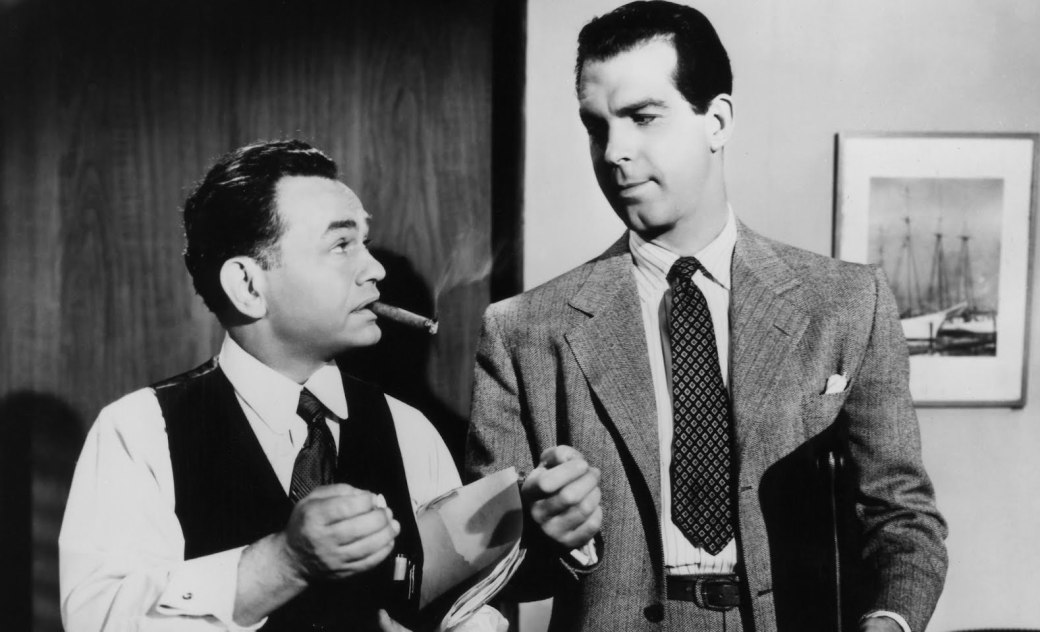
Fred MacMurray / Edward G. Robinson for Double Indemnity (1944) – – – Tim J. Krieg @FiveStarFlicks
Double Indemnity is a film about friendship. Sure there’s a few murders, and betrayals, and tainted love, and lots of other things going on above and below the surface of this complex story, but at its heart it is a story about duplicitous Walter Neff (Fred MacMurray) and claims investigator extraordinaire Barton Keyes (Edward G. Robinson). The incomparable Barbara Stanwyck gets the film’s showiest role as the conniving Phyllis Dietrichson, the cinema’s ultimate devious dame and femme fatale. She was rewarded with an Oscar nomination for her work, meanwhile, the smooth talking MacMurray and rapid-fire Robinson were completely shut out of the race, overshadowed at the box office and the Oscars by Bing Crosby and Barry Fitzgerald in Leo McCarey’s schmaltzy musical-comedy Going My Way. It’s understandable to see how in 1944, with the country several years into the horror that was World War II, that the general public as well as Oscar voters would lean that way. Robinson was never accepted as an Oscar-worthy actor by his peers, failing to get a single nomination over his entire career. It is such a shame that MacMurray and Robinson were snubbed for Double Indemnity, their performances are the glue that hold the film together, a film that is pitch perfect in every way. They say that all acting is reacting, and these two master craftsman volley Billy Wilder’s breakneck dialogue back and forth with ease. The bond they build over the film, Hollywood tough guys don’t usually show affection for one another unless they’re huddled together on the front lines of some godforsaken war. It’s shown in Robinson’s playful prodding of MacMurray to move out of the sales racket, in the half dozen times MacMurray is there to light up Robinson’s cigar, and especially shown in the film’s final moments. Many crime films opt to end on a note of supreme violence, all guns blazing. Double Indemnity ends with MacMurray looking up to Robinson and explaining why he was unable to figure it out. MacMurray reaches into his pocket, pulls out a cigarette and a match and struggles to light it. Without hesitation Robinson leans over, takes the match from MacMurray, and like his friend has done so many times for him, he lights his cigarette. Perfection.
Isabelle Huppert for The Piano Teacher (2001) – – – Robin Write @Filmotomy
Isabelle Huppert’s Erika is a tormented woman, surrounded by bleakness and misery, and the actress sucker-punches you on numerous occasions. It’s a brutal, emotive display from Huppert, who portrays Erika as a somehow isolated, defeated woman, void of any ample amount of warm, aesthetic feelings – but oh my would she welcome them. Michael Haneke does this kind of melancholy well, very well, but makes it compelling and meaningful. The Piano Teacher conjures all manner of dark thoughts, what you would be willing to do to gain some rightful attention and affection. Erika’s pain is clearly physically and mental, but also manifested through sexual encounters, here with a much younger man – this itself leaving her humiliated further. It is not an easy watch, that is for sure, but a devastatingly good one. Huppert was highly regarded and strongly considered at Cannes (as she always is) and took the Best Actress prize for The Piano Teacher. Come Oscar time however, Huppert and the movie were nowhere to be seen, which is rather obscure for what turns out to be the performance of the year.
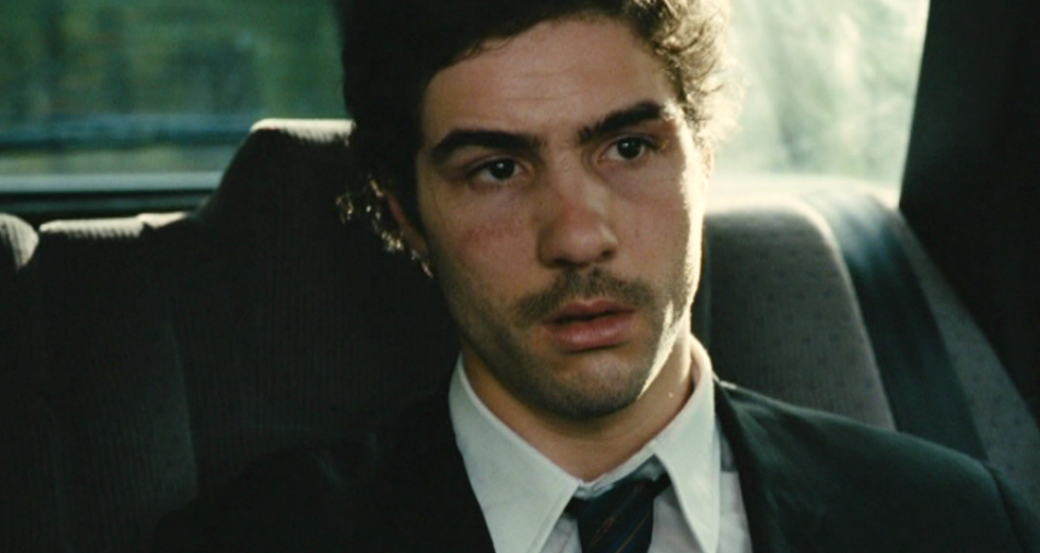
Tahar Rahim for A Prophet (2009) – – – Steve Schweighofer @banjoonthecrag
It’s difficult – if not impossible – for an upstart, non-English speaking actor to expect to be included in an awards party that is primarily Anglophone and steeped in sentimentality and “paid dues” – but if there should have been an exception, it is Tahar Rahim in A Prophet. Jacques Audiard’s film follows Malik on his journey from an illiterate street thug thrown into prison over a scuffle with police, through his education (both literate and hard knocks), into his blossoming into a crime kingpin. This was Rahim’s first major role, so the freshness he demonstrates in the early scenes appears genuine. Where he really shows his untapped skills is in his feral transformation as the film proceeds. We sense the change in his facial expression, his stance and his voice – the boyish clumsiness is replaced by confidence and a keen predator instinct that’s protective of what he has learned and the respect he has acquired. Rahim is a major, natural talent. He’ll be around for a while so Oscar will likely have another chance at him.

Cameron Diaz for Being John Malkovich (1999) – – – Robin Write @Filmotomy
I’m not going to lie, I was never a great fan of Cameron Diaz, even from that moment she emerged from the heavens in The Mask. My opinion of her screen presence and appeal has declined somewhat over the last decade it’s fair to say. Two of her strongest, richly diverse big-screen outings were in the hilarious There’s Something About Mary and more dour turn in Being John Malkovich – both in my view can be given a good case towards potential Oscar nominations. As a puppeteer’s unfulfilled wife Lotte Schwartz in the genius Being John Malkovich, Diaz is dressed down and given a total physical make-under. Don’t be fooled though, there is some fine acting here behind the bushy hair, Diaz executes Spike Jonze’s direction and Charlie Kaufman’s words with an awe-inspiring confidence we have not likely seen from her again. Lotte is a sympathetic soul, perhaps the real victim and heroine of the film, she goes where her heart takes her. Seeing the impressive performance for yourself you simply have to take Diaz seriously regardless of her more showy, comedy reputation. That said, although she is every bit as good as the Oscar-nominated Catherine Keener, that very notion may have been her downfall when it came to winning votes from the Academy.
Samuel L. Jackson for Django Unchained (2012) – – – Jonathan Holmes @MisterBrown_23
In 2012, the “Bad Mother Fucker” returned with a vengeance; first by diving into his juiciest role in years as the director of a clandestine espionage agency who’s not entirely on the level in Marvel’s The Avengers. And then in late-December as the house slave to the sadistic Calvin Candie (Leonardo DiCaprio, who also should have been nominated) in Quentin Tarantino’s excellent mash-up of Sergio Leonie-style spaghetti westerns and 70’s era blaxplotiaton flicks. Stephen immediately is suspicious of Django (Jamie Foxx) and Dr. King Schultz (Christoph Waltz) who claim that they’re here to purchase one of the slave owners “mandingo fighters”, but soon realizes it’s all a ruse to free Broomhilda (Kerry Washington), Django’s wife, and run off together. Stephen’s ulterior motive is to eliminate what he sees as a threat to his influence on Candie himself. The last time Jackson went full-evil was in Jackie Brown, where he played a gun runner looking to score $1 million by any means necessary, and here the man is simply diabolical as he corners Django and has him by the balls – literally – and sends him off to die in a rock mine factory. Or so he thinks. I enjoyed Waltz’s performance and I wouldn’t have had a problem if he still ended up winning, but no love for a performance that reminds everyone that Sam Jackson is still one of the best, most versatile actors out there? For shame, Academy.



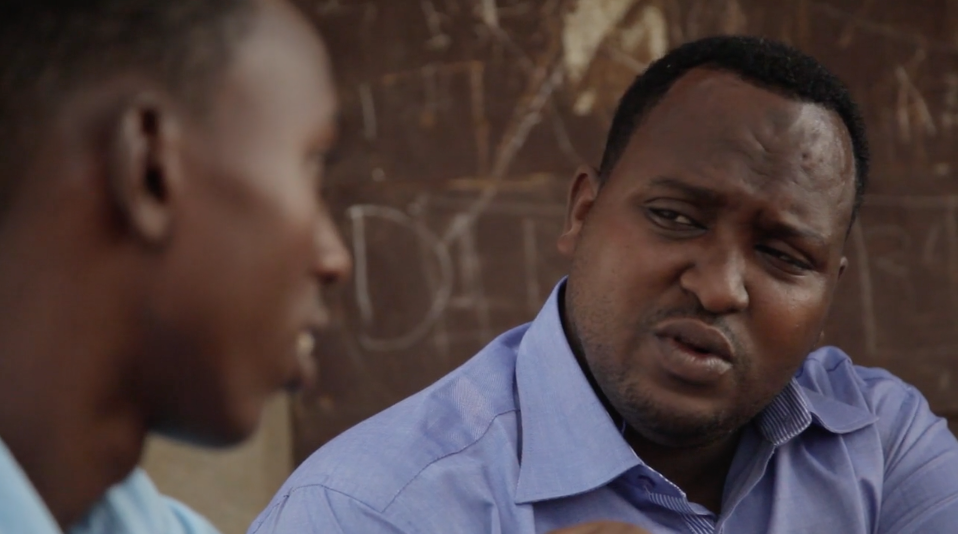

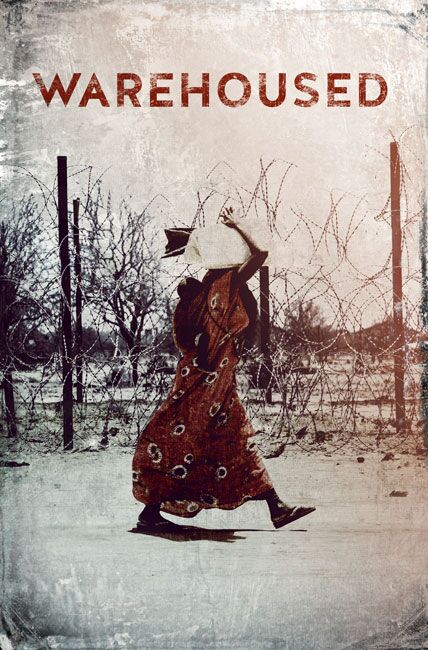

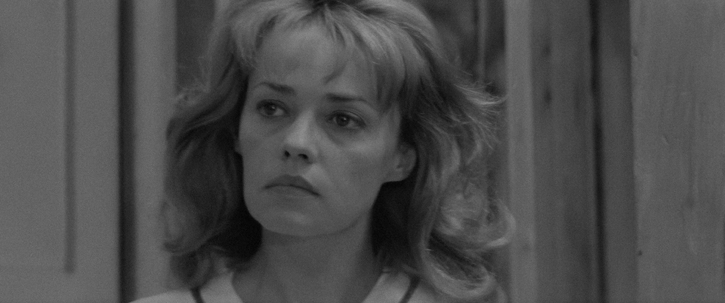


Recent Comments